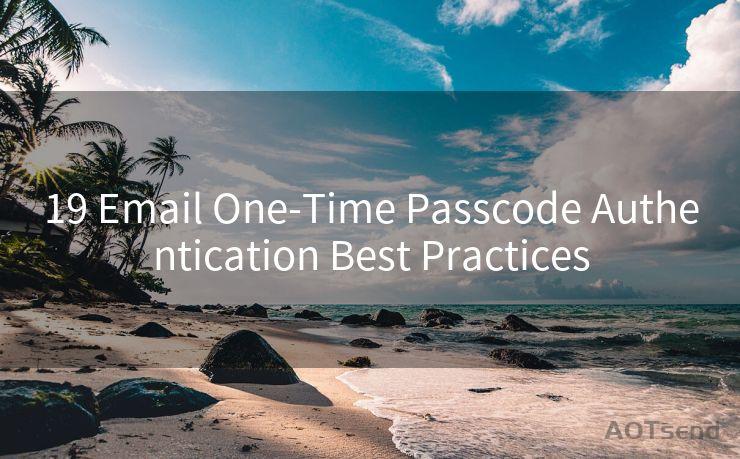19 Email One-Time Passcode Authentication Best Practices




In the digital age, security is paramount, and one-time passcode (OTP) authentication via email has become a common method to enhance security during login or transaction verification. Here are 19 best practices for implementing email OTP authentication to ensure maximum security.
1. Use Secure Email Servers
Ensure that your email servers use the latest security protocols, such as SSL/TLS, to encrypt data in transit. This prevents OTPs from being intercepted by malicious third parties.
2. Strong Passcode Generation
Generate OTPs that are random, complex, and difficult to predict. Avoid using sequential or easily guessable codes.
3. Limited Validity
Set a short expiration time for each OTP, typically a few minutes, to reduce the window of opportunity for potential attackers.
4. Clear Instructions
Provide clear and concise instructions to users on how to use the OTP, including where to find it in the email and how to enter it correctly.
5. Multi-Factor Authentication
Combine OTP with other authentication methods, such as a username and password, to create a stronger, multi-factor authentication process.
6. Avoid OTP Reuse
Ensure that each OTP can only be used once and for a single purpose to prevent replay attacks.
7. Secure Storage
Protect the system that generates and stores OTPs with robust security measures, including encryption and access controls.
8. Monitor Suspicious Activity
Implement monitoring systems to detect and respond to any suspicious activity related to OTP requests or usage.
9. User Education
Educate users about the importance of keeping their email accounts secure, as compromised emails can lead to OTP leaks.
10. Test OTP System Regularly
Conduct regular tests to ensure the OTP system is functioning properly and identify any potential vulnerabilities.
🔔🔔🔔
【AOTsend Email API】:AOTsend is a Managed Email Service for sending transactional emails. Support Email Types: reminders, authentication, confirmations, notifications, verification codes, invoices, password resets, account activations, billing statements, two-factor authentication (2FA), and one-time passwords (OTP) emails, etc. $0.28 per 1000 Emails. 99% Delivery, 98% Inbox Rate.
You might be interested in:
Why did we start the AOTsend project, Brand Story?
What is a Managed Email API, How it Works?
Best 25+ Email Marketing Platforms (Authority,Keywords&Traffic Comparison)
Best 24+ Email Marketing Service (Price, Pros&Cons Comparison)
Email APIs vs SMTP: How they Works, Any Difference?
11. Secure Email Delivery
Use email providers with a proven track record of secure delivery to ensure OTPs reach the intended recipient safely.
12. Privacy Protection
Respect user privacy by minimizing the collection of personal data and securing any stored information.
13. Responsive Design
Ensure OTP emails are mobile-friendly, as many users may access their emails via smartphones.
14. Unique OTPs for Each Service
If a user utilizes OTP for multiple services, ensure that each service has its own unique OTP to avoid confusion and enhance security.
15. Clear Error Messages
Provide clear error messages if an OTP is entered incorrectly, expired, or already used, guiding the user to take appropriate action.
16. Logging and Auditing
Maintain detailed logs of OTP generation, delivery, and usage for auditing and troubleshooting purposes.
17. Backup and Recovery Plan
Have a backup and recovery plan in case the OTP system experiences any technical issues.
18. Regular Updates
Keep the OTP system up to date with the latest security patches and upgrades.
19. Customer Support
Provide easily accessible customer support to assist users with any OTP-related issues.
By following these 19 email one-time passcode authentication best practices, organizations can significantly enhance the security of their online platforms and services, protecting user data and reducing the risk of unauthorized access. Implementing these practices is crucial in today's digital landscape, where security breaches are becoming increasingly common.





Scan the QR code to access on your mobile device.
Copyright notice: This article is published by AotSend. Reproduction requires attribution.
Article Link:https://www.mailwot.com/p2135.html



